The Last Conquistadors
[2002]
Lyrics & Music by David Kilpatrick
"A little song in a Latin rhythm with a Canarian timple (a five-string viheula-shaped ukulele) providing local colour! OK, it ain't flamenco, but it's the only song I've ever performed live on a flamenco guitar borrowed from a flamenco singer.
I'd been reading some of the 15th to 17th century original accounts of exploration, and the idea just came into my head. I have never before made a recording using the timple, which is an instrument only played in the Canary Islands, one of the staging posts for the New World. I had to learn to play it for this and it sounds very bright and quick; it's an instrument which could be used more".
Lyrics & Music by David Kilpatrick
"A little song in a Latin rhythm with a Canarian timple (a five-string viheula-shaped ukulele) providing local colour! OK, it ain't flamenco, but it's the only song I've ever performed live on a flamenco guitar borrowed from a flamenco singer.
I'd been reading some of the 15th to 17th century original accounts of exploration, and the idea just came into my head. I have never before made a recording using the timple, which is an instrument only played in the Canary Islands, one of the staging posts for the New World. I had to learn to play it for this and it sounds very bright and quick; it's an instrument which could be used more".
We are the last conquistadors
(Continues)
(Continues)
Contributed by giorgio 2010/12/7 - 19:35
Τα λουστράκια
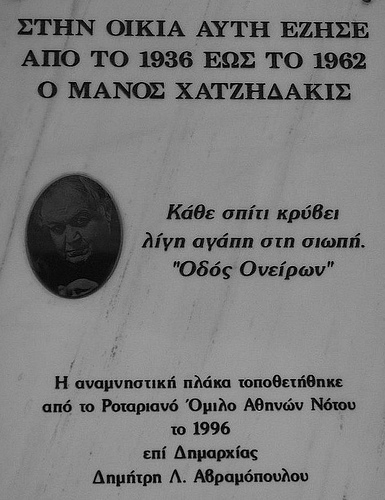
Ta loustrákia
Στίχοι: Νίκος Γκάτσος
Μουσική: Μάνος Χατζιδάκις
Πρώτη εκτέλεση: Ορχιστρικό
America America - 1963
Testo di Nikos Gatsos
Musica di Manos Hatzidakis
Prima esecuzione: Οrchestra
Soundtrack del film "America America" di Elia Kazan - 1963
I Greci manifestano sentimenti fraterni per gli Armeni, con i quali hanno condiviso le violente persecuzioni dei Turchi, già in atto ben prima (1894-96) del genocidio armeno del 1915-16 e della cacciata dei Greci del 1922. Quando l'armeno Elìa Kazan progettò di girare il film "America America" sulla traccia di un suo omonimo racconto, dove Armeni e Greci, negli anni Novanta del XIX sec., condividono le medesime peripezie e il sogno di raggiungere ad ogni costo l'America, per le musiche pensò al greco Manos Hatzidakis, che aveva già raggiunto una notevole notorietà negli U.S.A. grazie alla canzone "I ragazzi del Pireo" del film "Mai di... (Continues)
Στίχοι: Νίκος Γκάτσος
Μουσική: Μάνος Χατζιδάκις
Πρώτη εκτέλεση: Ορχιστρικό
America America - 1963
Testo di Nikos Gatsos
Musica di Manos Hatzidakis
Prima esecuzione: Οrchestra
Soundtrack del film "America America" di Elia Kazan - 1963
I Greci manifestano sentimenti fraterni per gli Armeni, con i quali hanno condiviso le violente persecuzioni dei Turchi, già in atto ben prima (1894-96) del genocidio armeno del 1915-16 e della cacciata dei Greci del 1922. Quando l'armeno Elìa Kazan progettò di girare il film "America America" sulla traccia di un suo omonimo racconto, dove Armeni e Greci, negli anni Novanta del XIX sec., condividono le medesime peripezie e il sogno di raggiungere ad ogni costo l'America, per le musiche pensò al greco Manos Hatzidakis, che aveva già raggiunto una notevole notorietà negli U.S.A. grazie alla canzone "I ragazzi del Pireo" del film "Mai di... (Continues)
Δουλειά και χαμαλίκι
(Continues)
(Continues)
Contributed by Gian Piero Testa 2010/12/7 - 17:16
Un'altra via d'uscita

Sono piccolina, mi chiamo Giorgia e scrivo con l'aiuto di mamma Barbara. A me questa canzone piace, è simpatica e carina. L'ho sentita per la prima volta perchè a Barbara piace Daniele Sepe che è il suo cantautore preferito, e da allora la sento quasi ogni giorno... Ho imparato a memoria il testo! Tanti bacioni da Trieste!
((Giorgia))
((Giorgia))
Però! E poi si dice che i ragazzini e le ragazzine non ascoltano che Tiziano Ferro! Qui ne abbiamo non una, ma addirittura due, che "tifano" per il "nostro" Daniele Sepe (dico "nostro" perché è da anni un frequentatore e un amico di questo sito). Che dire? Sarà l'aria di Trieste, città che un po' conosco... E un saluto e complimenti anche alla mamma! (RV)
2010/12/7 - 17:10
Laidlaw's Last Lament
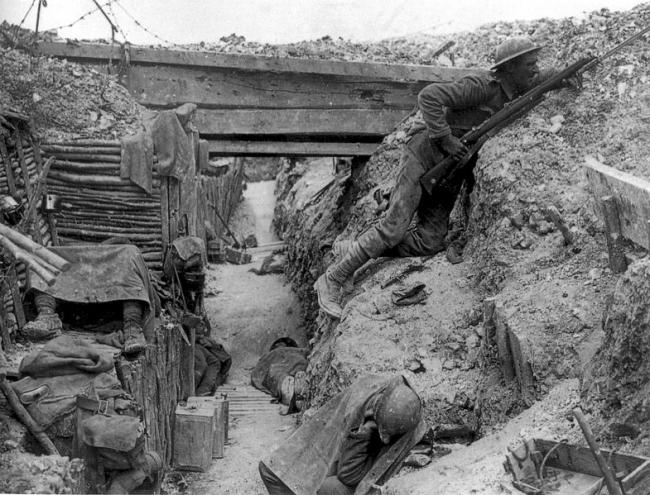
[2000]
Lyrics & Music by David Kilpatrick
An atmospheric Border Scots ballad in the auld tradition: how 'the Piper of Loos' saved the 7th Battalion of the King's Own Scottish Borderers in October 1915..
"The week before Armistice Day (November 11) 1999 a story was published in the Southern Reporter, researched by Bill Bruce, which neatly and emotively retold how Piper D L Laidlaw VC reversed the fortunes of a Border battalion fighting in the trenches of the Great War. I wrote the song in a moderate Border Scots dialect, which is easily understood, and played it locally. The lyrics were published by the newspaper. Like most of my songs, the inspiration was immediate and it took around 90 minutes to complete and a further hour to record. This is the second take. The pipes, ambient noise and gunfire effects are added on a Roland JV-50 keyboard and the rest is a one-take recording, playing a Lowden O-10 guitar in drop D tuning and singing. The recording is on a Roland VS-880".
Lyrics & Music by David Kilpatrick
An atmospheric Border Scots ballad in the auld tradition: how 'the Piper of Loos' saved the 7th Battalion of the King's Own Scottish Borderers in October 1915..
"The week before Armistice Day (November 11) 1999 a story was published in the Southern Reporter, researched by Bill Bruce, which neatly and emotively retold how Piper D L Laidlaw VC reversed the fortunes of a Border battalion fighting in the trenches of the Great War. I wrote the song in a moderate Border Scots dialect, which is easily understood, and played it locally. The lyrics were published by the newspaper. Like most of my songs, the inspiration was immediate and it took around 90 minutes to complete and a further hour to record. This is the second take. The pipes, ambient noise and gunfire effects are added on a Roland JV-50 keyboard and the rest is a one-take recording, playing a Lowden O-10 guitar in drop D tuning and singing. The recording is on a Roland VS-880".
In Scotland we were brothers three
(Continues)
(Continues)
Contributed by giorgio 2010/12/7 - 16:36
Song Itineraries:
World War I (1914-1918)
Fermo!

[2008]
Album “Bachelite”
Album “Bachelite”
Ai confini della realtà tra l’Umbria e le Marche si erge il massiccio del Monte Vettore, il più alto dei monti Sibillini.
(Continues)
(Continues)
Contributed by Bartleby 2010/12/7 - 14:55
Siamo tutti Pino Maniaci

http://it.wikipedia.org/wiki/Telejato
Il testo l'ho trascritto dal video l'audio è pessimo e non si capisce tutto perfettamente, ma meritava di essere inserita comunque.
Il testo l'ho trascritto dal video l'audio è pessimo e non si capisce tutto perfettamente, ma meritava di essere inserita comunque.
Cantano morbide di forme generose
(Continues)
(Continues)
Contributed by DonQuijote82 2010/12/7 - 11:20
Song Itineraries:
Mafia and Mafias
Testimone di giustizia

Dedicata a Rita Atria
Si potrebbe appoggiare le labbra alle mani
(Continues)
(Continues)
Contributed by DonQuijote82 2010/12/7 - 10:58
Song Itineraries:
Mafia and Mafias
When I Was Young
[~1970]
Lyrics & Music by David Kilpatrick
"I wrote this song, with a tune derived from central European traditions, around about 1970 - many years before the wars in the Balkans. I found it in a folder of teenage jottings".
http://libcom.org/history/articles/ita...
Lyrics & Music by David Kilpatrick
"I wrote this song, with a tune derived from central European traditions, around about 1970 - many years before the wars in the Balkans. I found it in a folder of teenage jottings".
http://libcom.org/history/articles/ita...
When I was young, boy
(Continues)
(Continues)
Contributed by giorgio 2010/12/7 - 08:12
Frailty (The Way Of Rome)
[2009]
Lyrics & Music by Andy Laverghetta
Album: Symptomatic
"A thrashing political statement... unintentionally began to sound like a Dave Mustaine tribute when I pushed my voice to the edge and beyond.. Just like most Americans, I'm sick of the BS we've been fed.."
Lyrics & Music by Andy Laverghetta
Album: Symptomatic
"A thrashing political statement... unintentionally began to sound like a Dave Mustaine tribute when I pushed my voice to the edge and beyond.. Just like most Americans, I'm sick of the BS we've been fed.."
Weakened states, weakened nation
(Continues)
(Continues)
Contributed by giorgio 2010/12/7 - 08:08
Il treno della disperazione

Chanson italienne – Il treno della disperazione – Del Sangre
Dans les années 1920, les lois étazuniennes qui limitaient l'afflux des étrangers et les lois fascistes sur l'abandon des campagnes étouffèrent en grande part l'émigration comme soupape de sécurité du chômage. C'est seulement après la seconde guerre que reprit de façon appréciable le flux migratoire. Les lignes des mouvements principaux toutefois sont différents : la direction est le Nord, au-delà des Alpes ou vers les centres industriels de Turin et de Milan, et les dimensions de l'exode croissent en proportion du développement industriel. Vers la fin des années 50 et au début des années 60, environ deux millions de personnes se sont déplacées vers le Nord. Le symbole de ce voyage est le train, sombre et étrange trajet d'une terre de couleurs à une ville de brouillard et de béton armé.
La production de chants sur l'émigration... (Continues)
Dans les années 1920, les lois étazuniennes qui limitaient l'afflux des étrangers et les lois fascistes sur l'abandon des campagnes étouffèrent en grande part l'émigration comme soupape de sécurité du chômage. C'est seulement après la seconde guerre que reprit de façon appréciable le flux migratoire. Les lignes des mouvements principaux toutefois sont différents : la direction est le Nord, au-delà des Alpes ou vers les centres industriels de Turin et de Milan, et les dimensions de l'exode croissent en proportion du développement industriel. Vers la fin des années 50 et au début des années 60, environ deux millions de personnes se sont déplacées vers le Nord. Le symbole de ce voyage est le train, sombre et étrange trajet d'une terre de couleurs à une ville de brouillard et de béton armé.
La production de chants sur l'émigration... (Continues)
LE TRAIN DU DÉSESPOIR
(Continues)
(Continues)
Contributed by Marco Valdo M.I. 2010/12/6 - 20:09
Storia mia e di due come me
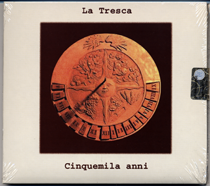
2006/7
Da "Cinquemila anni"
Da "Cinquemila anni"
Io son Giorgio e questa è
(Continues)
(Continues)
Contributed by DonQuijote82 2010/12/6 - 15:52
Song Itineraries:
Resistance against Nazi-Fascism in Italy and Europe
La grotta der Citerno

2006/7
Da "Cinquemila anni"
Da "Cinquemila anni"
"Che è, che è, che è sto gran rumore"
(Continues)
(Continues)
Contributed by DonQuijote82 2010/12/6 - 15:41
Boat people
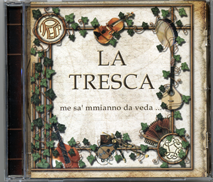
2001
Da "me sà mmianno da veda"
Intro tratto dall'album live "Lasciare libero il passo"
Questo brano è un po' la storia di una transumanza umana il popolo delle navi, boat people, che come gli animali lasciano le loro terre aride e secche per cercarne di più verdi altrove, questa gente lascia le loro terre per cercare fortuna sulle nostre coste dove probabilmente poi non ce n'è.
Anni fa abbiamo pensato di dedicare a questo popolo un brano che si intitola per l'appunto Boat People
(DonQuijote82)
Da "me sà mmianno da veda"
Intro tratto dall'album live "Lasciare libero il passo"
Questo brano è un po' la storia di una transumanza umana il popolo delle navi, boat people, che come gli animali lasciano le loro terre aride e secche per cercarne di più verdi altrove, questa gente lascia le loro terre per cercare fortuna sulle nostre coste dove probabilmente poi non ce n'è.
Anni fa abbiamo pensato di dedicare a questo popolo un brano che si intitola per l'appunto Boat People
(DonQuijote82)
Inermi in mezzo al mare,
(Continues)
(Continues)
Contributed by DonQuijote82 2010/12/6 - 15:11
Song Itineraries:
The War of Labour: Emigration, Immigration, Exploitation, Slavery
Quel fischio sopra la pianura
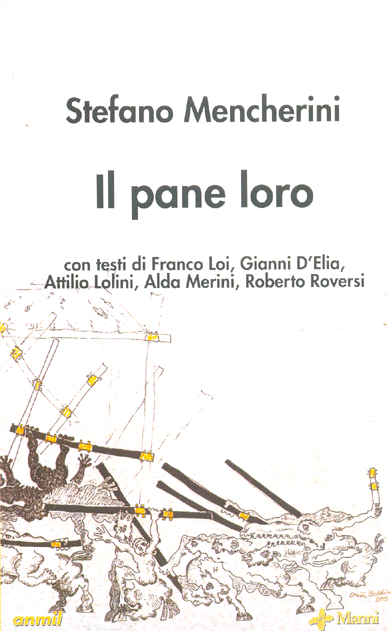
(2000)
Testo: Roberto Roversi
Musica: Gaetano Curreri
Scritta da Roversi e Curreri nel 2000 per lo spettacolo teatrale intitolato “Il pane loro - Storie da una Repubblica fondata sul lavoro”, scritto e diretto da Stefano Mencherini, giornalista e autore televisivo.
Nelle diverse edizioni dello spettacolo la canzone è stata interpretata prima dalo stesso Gaetano Curreri e poi dal compianto Francesco Di Giacomo, voce del Banco del Mutuo Soccorso.
Intrpretata anche da Fabrizio Moro in Ancora Barabba del 2010.
Testo: Roberto Roversi
Musica: Gaetano Curreri
Scritta da Roversi e Curreri nel 2000 per lo spettacolo teatrale intitolato “Il pane loro - Storie da una Repubblica fondata sul lavoro”, scritto e diretto da Stefano Mencherini, giornalista e autore televisivo.
Nelle diverse edizioni dello spettacolo la canzone è stata interpretata prima dalo stesso Gaetano Curreri e poi dal compianto Francesco Di Giacomo, voce del Banco del Mutuo Soccorso.
Intrpretata anche da Fabrizio Moro in Ancora Barabba del 2010.
La verità è ormai che ci credono mummie d'Egitto
(Continues)
(Continues)
Contributed by DonQuijote82 2010/12/6 - 12:36
Song Itineraries:
The War of Labour: Emigration, Immigration, Exploitation, Slavery
Dio blindato

[1995]
Album “Istentales”
Scritta da Gigi Sanna
Album “Istentales”
Scritta da Gigi Sanna
La peggiore razza sulla terra è quella che t’impone il clero
(Continues)
(Continues)
Contributed by Bartleby 2010/12/6 - 10:56
Song Itineraries:
Antiwar Anticlerical
Emigrato
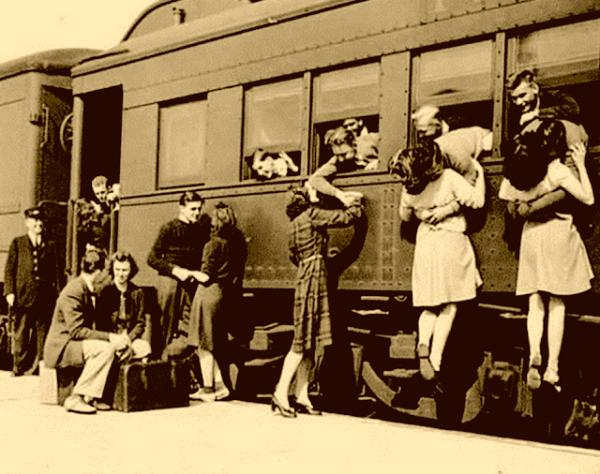
[1989]
Album “Naralu tue” (1996)
Scritta da Gigi Sanna
Album “Naralu tue” (1996)
Scritta da Gigi Sanna
Sarà la storia un po’ di tutti i posti
(Continues)
(Continues)
Contributed by Bartleby 2010/12/6 - 10:51
Song Itineraries:
The War of Labour: Emigration, Immigration, Exploitation, Slavery
Oil

[2008]
Lyrics and Music by Eric Greene
"..The curse of oil."
Lyrics and Music by Eric Greene
"..The curse of oil."
The water's black and slick for miles.
(Continues)
(Continues)
Contributed by giorgio 2010/12/5 - 18:42
French in America
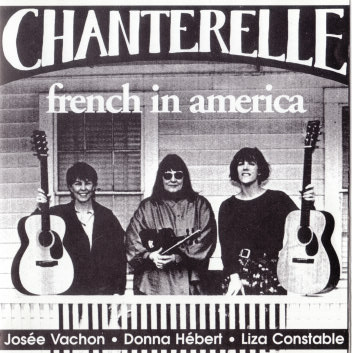
French in America
Chanson de langue française – French in America – Josée Vachon
Encore une chanson qui raconte la Grande déportation des Acadiens et ce qui s'en est suivi... On verra qu'elle est bilingue, comme la chanteuse qui l'a composée, laquelle vit présentement aux Zétazunis.
Chanson de langue française – French in America – Josée Vachon
Encore une chanson qui raconte la Grande déportation des Acadiens et ce qui s'en est suivi... On verra qu'elle est bilingue, comme la chanteuse qui l'a composée, laquelle vit présentement aux Zétazunis.
Tout le long, maluron, malurette
(Continues)
(Continues)
Contributed by Marco Valdo M.I. 2010/12/5 - 17:46
Valley of the Low Sun

Album: "Seeing Things" (2008)
We'd feel much better if we sunk this treasure
(Continues)
(Continues)
2010/12/5 - 16:32
Évangéline

ÉVANGELINE 2003
Chanson acadienne – Michel Conte – 2003
Évangéline est une chanson qui fait vibrer une corde sensible chez les Acadiens. C'est une histoire d'exil, d'espoir et d'amour reprise par les plus grandes voix d'Acadie, dont Marie-Jo Thériault, Rose-Marie Landry, Isabelle Roy et Annie Blanchard.
La chanson conte la déportation réellement vécue du peuple acadien, en 1755, de leur Acadie natale, du village de Grand-Pré (Nouvelle-Écosse), et, plus précisément, cela conte l'histoire d'une Acadienne, Évangéline, qui a recherché toute sa vie, par la suite, son grand Amour, son fiancé, Gabriel, et ce n'est qu'à la fin, alors qu'elle soignait des malades dans un centre, elle retrouve Gabriel et le reconnaît, malade, juste avant qu'il ne meure, dans ses bras.
La chanson – un peu mélodramatique – commence avec Évangéline dans les bras de Gabriel et finit avec Gabriel mourant dans les bras d'Évangéline.
Chanson acadienne – Michel Conte – 2003
Évangéline est une chanson qui fait vibrer une corde sensible chez les Acadiens. C'est une histoire d'exil, d'espoir et d'amour reprise par les plus grandes voix d'Acadie, dont Marie-Jo Thériault, Rose-Marie Landry, Isabelle Roy et Annie Blanchard.
La chanson conte la déportation réellement vécue du peuple acadien, en 1755, de leur Acadie natale, du village de Grand-Pré (Nouvelle-Écosse), et, plus précisément, cela conte l'histoire d'une Acadienne, Évangéline, qui a recherché toute sa vie, par la suite, son grand Amour, son fiancé, Gabriel, et ce n'est qu'à la fin, alors qu'elle soignait des malades dans un centre, elle retrouve Gabriel et le reconnaît, malade, juste avant qu'il ne meure, dans ses bras.
La chanson – un peu mélodramatique – commence avec Évangéline dans les bras de Gabriel et finit avec Gabriel mourant dans les bras d'Évangéline.
Toi dans les bras de Gabriel
(Continues)
(Continues)
Contributed by Marco Valdo M.I. 2010/12/5 - 14:44
Évangéline
(1910)
Évangéline est "la" chanson de l'exil des Acadiens. elle connut plusieurs versions. Celle de Bourque est la première connue; elle remonte à 1910. Elle a marqué le coeur et même, l'âme des Acadiennes et des Acadiens et tout autant des Québecquoises et des Québecquois; elle est moins connue de ce côté-ci de l'Atlantique. Elle marque aussi la résistance des populations d'origine francophone face à l'anglicisation forcée tout autant que rampante. Dans le cas des Acadiens de Grand Pré, ce fut carrément l'invasion et ensuite, la déportation pure et simple.
"La vie alors coulait douce et paisible
Au vieux Grand-Pré, dans notre cher pays
Lorsque soudain, notre ennemi terrible
Nous abreuva de malheurs inouïs"
Il existe dans la chanson, une autre Evangéline et une chanson des Grands Prés;
Évangéline est "la" chanson de l'exil des Acadiens. elle connut plusieurs versions. Celle de Bourque est la première connue; elle remonte à 1910. Elle a marqué le coeur et même, l'âme des Acadiennes et des Acadiens et tout autant des Québecquoises et des Québecquois; elle est moins connue de ce côté-ci de l'Atlantique. Elle marque aussi la résistance des populations d'origine francophone face à l'anglicisation forcée tout autant que rampante. Dans le cas des Acadiens de Grand Pré, ce fut carrément l'invasion et ensuite, la déportation pure et simple.
"La vie alors coulait douce et paisible
Au vieux Grand-Pré, dans notre cher pays
Lorsque soudain, notre ennemi terrible
Nous abreuva de malheurs inouïs"
Il existe dans la chanson, une autre Evangéline et une chanson des Grands Prés;
Je l'avais cru, ce rêve du jeune âge
(Continues)
(Continues)
Contributed by Marco Valdo M.I. 2010/12/5 - 14:08
Liberate South Sudan
[2000]
Lyrics by Emmanuel Kembe and Thomas Lado.
Music by Emmanuel Kembe.
Album: Liberate South Sudan
This song highlights the flight of Sudanese Refugees..
"This song is title song of my second album upon arriving in the USA. This song calls out to the global human family of Africans living at home and abroad to rally behind the freedom cause of the Southern Sudanese People".
Lyrics by Emmanuel Kembe and Thomas Lado.
Music by Emmanuel Kembe.
Album: Liberate South Sudan
This song highlights the flight of Sudanese Refugees..
"This song is title song of my second album upon arriving in the USA. This song calls out to the global human family of Africans living at home and abroad to rally behind the freedom cause of the Southern Sudanese People".
We the people of Southern Sudan – the humiliated the exploited.
(Continues)
(Continues)
Contributed by giorgio 2010/12/5 - 10:29
Waiting for Peace
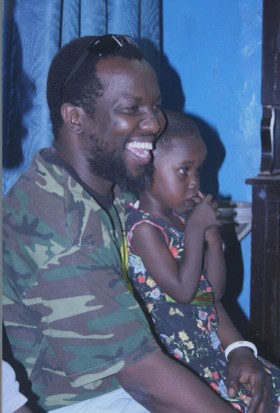
[2000]
Lyrics by Laurence Dahners
Music by Emmanuel Kembe
Album: Waiting for Peace
This song draws attention to the fact that Sudan is without just and lasting peace..
Lyrics by Laurence Dahners
Music by Emmanuel Kembe
Album: Waiting for Peace
This song draws attention to the fact that Sudan is without just and lasting peace..
Here I'm -waitin' for peace, brother
(Continues)
(Continues)
Contributed by giorgio 2010/12/5 - 10:14
The Holy Land Lies Within

[2008]
Lyrics & Music by Eric Greene
Lyrics & Music by Eric Greene
Another bomb goes off.. Soldiers are moving in..
(Continues)
(Continues)
Contributed by giorgio 2010/12/5 - 09:37
Business as Usual

[2008]
Lyrics & Music by Eric Greene
Lyrics & Music by Eric Greene
Landmines and cluster bombs... The Iraq war and Vietnam.
(Continues)
(Continues)
Contributed by giorgio 2010/12/5 - 08:43
×
![]()


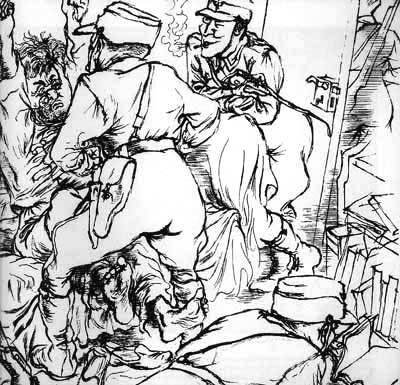




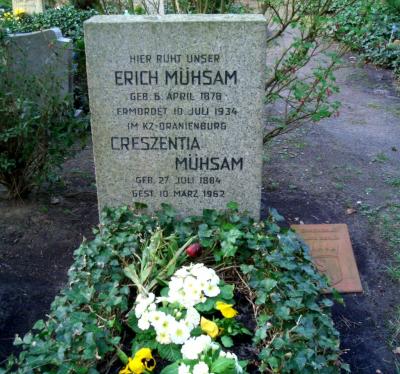





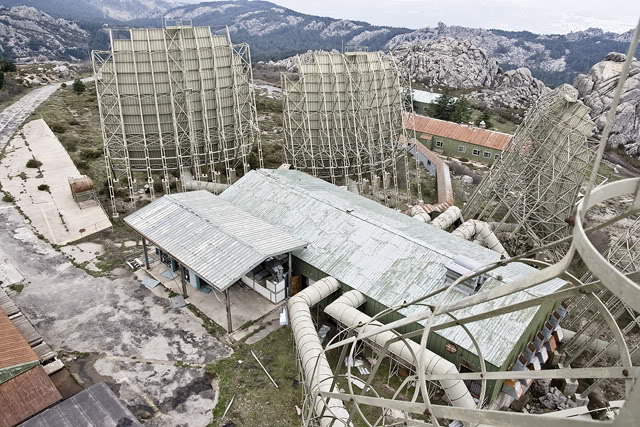
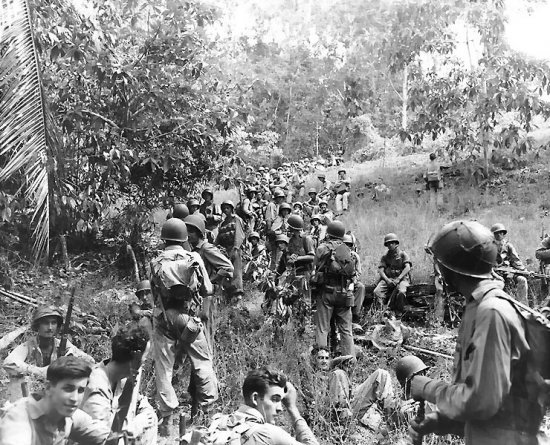
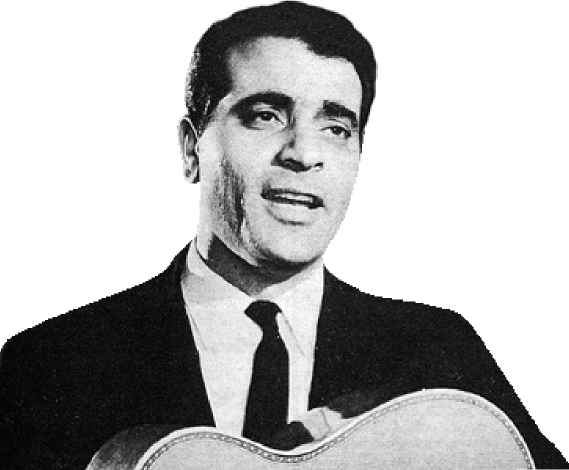


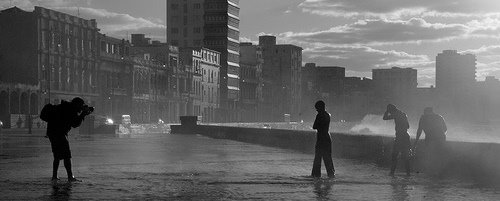
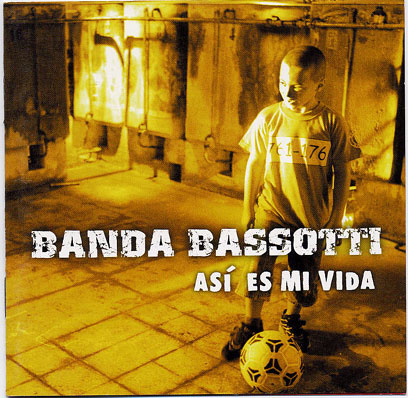
Album “Socialismo tascabile (prove tecniche di trasmissione)”